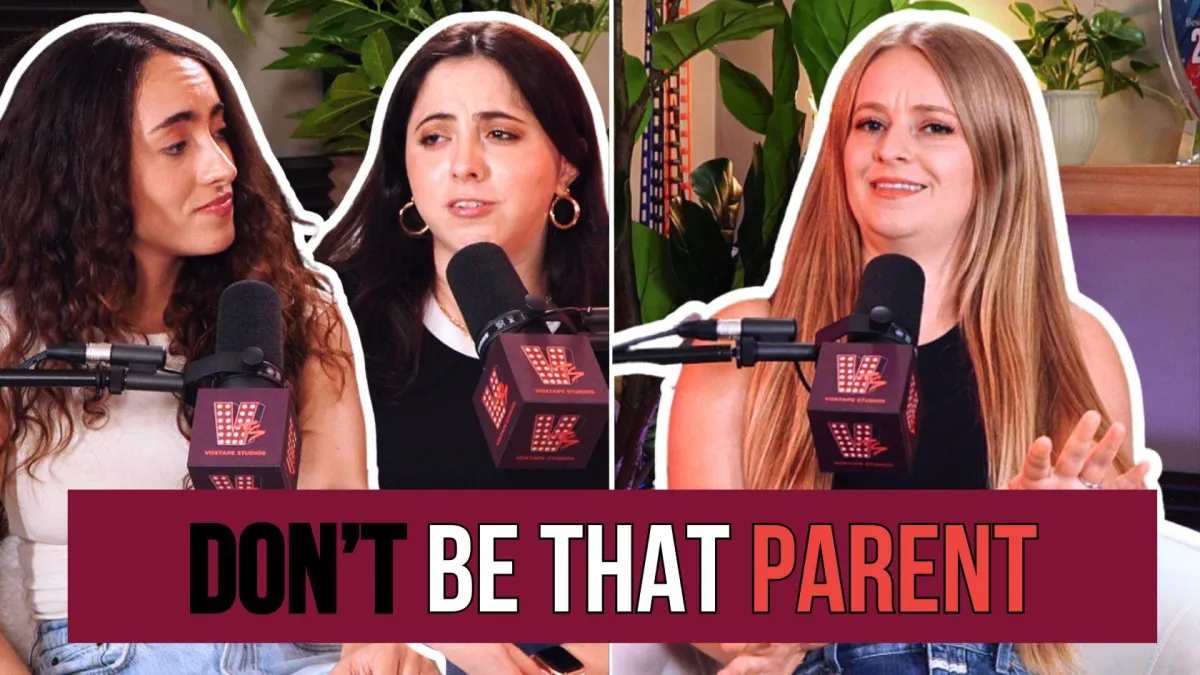
Voice Lessons for Kids: At What Age Should They Start & What To Expect
One of the biggest mistakes adults make when enrolling their child in voice lessons is expecting them to train like mini professionals. We’ve had so many parents come to our studio, asking us to teach their children how to belt. And I get it, your kid is probably already belting their heart out around the house and you want them to do it right. But how we teach young children vs teenagers and adults is very different, and belting exercises are definitely not a part of vocal training for kids.
For young singers, the most valuable thing you can cultivate is love for music. That’s it. Games, silly songs, funny voices—that’s all valid (and necessary) vocal work when you’re teaching children.
It builds musical instincts. It keeps them engaged and teaches them that music is a place of joy, not performance anxiety. It might seem like your child is just playing in their lesson, but through that play we are already setting a great vocal foundation for your child that will help them experience success as they grow up.
The Perfect Age To Get Them Started
Unfortunately, there is no universal perfect age to get your kid started with voice lessons, but here are a couple of guide lines:
They never seem to stop singing
They seem to have a natural talent for singing
They ask for lessons
This could happen at age 5, age 8, age 10 or later! I personally didn’t start voice lessons until I was 13 (that would already be considered voice training for teenagers, which is different from kid’s voice lessons). But coach Kate on our team - who’s also our young voice specialist - started at a much younger age. One of her friend’s mom noticed her talent and encouraged her to take lessons.
There is no perfect time to start lessons. Let your kid take the lead and be sure to seek out a young voice specialist if your kid is under the age of 10.
What to Expect from Lessons
Voice lessons for young singers will likely include:
Song games
Movement-based warmups
Exploration of pitch, rhythm, and melody
Creative play and imitation
Building awareness (not performance)
Your child might not walk away with a perfect high C—but they will build confidence, coordination, and curiosity.
“You’re helping them explore their voice, not control it yet.”
That foundation is what sets them up for long-term success as their voice matures.

Trust the Process—and the Coach
Teaching young children is a whole different ball game from teaching teenagers and adults of all ages… Practicing scales over and over again won’t work, because the child will lose interest. That is why if you decide to enroll your kid in voice lessons, please go with a coach who specializes in young voices. Both the coach and the child will feel a lot better this way and you can fully trust that the coach knows what they’re doing.
I already mentioned this in the intro, but belting exercises most likely won’t be a part of your kid’s vocal training - just like you don’t send your kid to the gym to lift a bunch of heavy weights. Belting is heavy lifting for the voice and it doesn’t help your child to work on that. Instead we want to build a foundation that’s flexible and sustainable so that when they reach their teenage years, they can then build on top of that foundation and explore that strong sound more.
That doesn’t mean your child will never be belting - try stopping a kid from doing that if they love it haha - but your kid’s teacher will do their best to make sure that they are doing it in a healthy way, while also trying to refocus the child’s energy towards techniques and habits that focus on flexibility and sustainability.
It’s tempting to want to step in, especially if you’re a musician yourself. But here’s a helpful reminder:
“If you were classically trained 20 years ago… you might not know everything. Even if you think you do.”
Today’s voice pedagogy for kids has evolved. We know more now about vocal development, motor learning, and brain chemistry in singers. Your teacher might not be giving your child scales or long lectures—but they’re teaching exactly what your child is ready to learn.
If you’ve chosen a coach you trust, let them lead.
Your Role as the Parent: Support, Don’t Pressure
The best thing you can do is support your child without hovering.
“Stop intervening. If you’re paying for lessons, let the teacher do the job.”
That means:
Don’t correct them during practice (or during their lesson!)
Don’t expect progress to be linear
Don’t judge their voice or tone
Don’t ask them to “sound like” someone else
Instead:
Encourage them to practice and do their “homework”
Celebrate their effort
Let them share their favorite songs
Play music together
Model loving music, not perfecting it
Again, if you’ve chosen to enroll your child in voice lessons, please let the coach do their job with giving your child direction. If you have any concerns or wishes, talk with your coach 1-on-1. They might be able to share more insights into why they’re doing that that they’re doing and see if your wishes are something that can be done now or if we have to wait till your child is a bit older.
Final Thought
If your child is curious about singing, lean into that curiosity—but don’t rush it.
Let them be goofy. Let them experiment. Let them be kids.
The more safe, silly, and supported they feel in their lessons, the more their voice (and confidence) will grow.
🎧 Want more ideas on how to support your child in voice lessons?
Prefer Listening To The Podcast On Your Favorite Platform? Listen Below.


